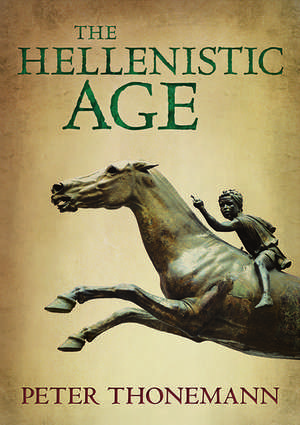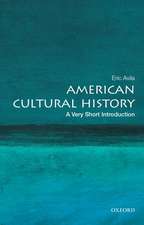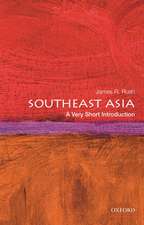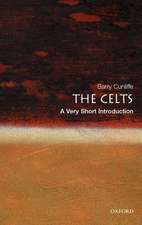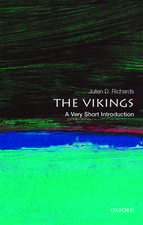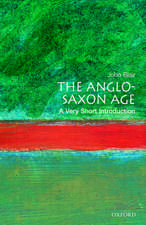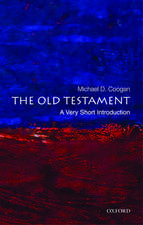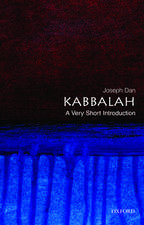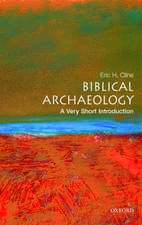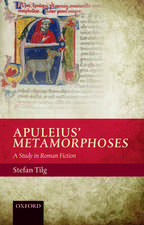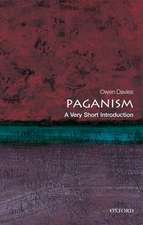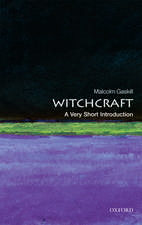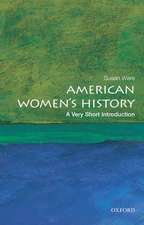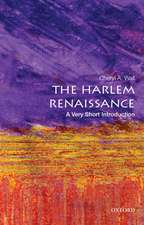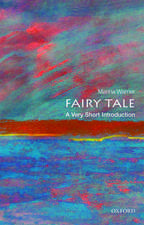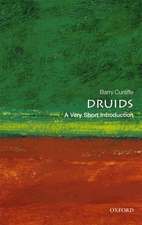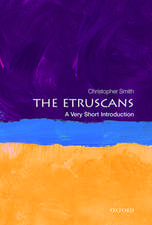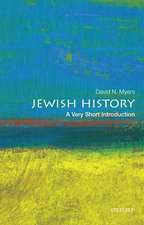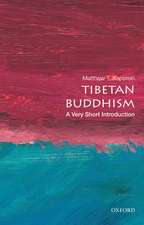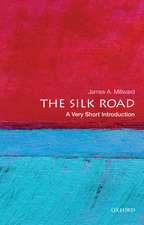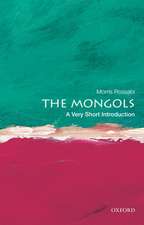The Hellenistic Age
Autor Peter Thonemannen Limba Engleză Hardback – 21 apr 2016
| Toate formatele și edițiile | Preț | Express |
|---|---|---|
| Paperback (1) | 51.63 lei 10-17 zile | +16.51 lei 7-13 zile |
| OUP OXFORD – 22 feb 2018 | 51.63 lei 10-17 zile | +16.51 lei 7-13 zile |
| Hardback (1) | 77.93 lei 10-17 zile | +25.52 lei 7-13 zile |
| OUP OXFORD – 21 apr 2016 | 77.93 lei 10-17 zile | +25.52 lei 7-13 zile |
Preț: 77.93 lei
Preț vechi: 94.11 lei
-17% Nou
Puncte Express: 117
Preț estimativ în valută:
14.91€ • 15.57$ • 12.34£
14.91€ • 15.57$ • 12.34£
Carte disponibilă
Livrare economică 03-10 martie
Livrare express 28 februarie-06 martie pentru 35.51 lei
Preluare comenzi: 021 569.72.76
Specificații
ISBN-13: 9780198759010
ISBN-10: 0198759010
Pagini: 176
Ilustrații: 17 black and white halftones
Dimensiuni: 128 x 176 x 14 mm
Greutate: 0.23 kg
Editura: OUP OXFORD
Colecția OUP Oxford
Locul publicării:Oxford, United Kingdom
ISBN-10: 0198759010
Pagini: 176
Ilustrații: 17 black and white halftones
Dimensiuni: 128 x 176 x 14 mm
Greutate: 0.23 kg
Editura: OUP OXFORD
Colecția OUP Oxford
Locul publicării:Oxford, United Kingdom
Recenzii
A beautiful little jewel [of a book]... which impressively manages to pack in an immense amount of evidence and issues, presented in a lucid and stimulating way.
A fine entry-level study of the Hellenistic Age ... Highly recommended.
A thoroughly enjoyable short book and serves as an excellent introduction to the Hellenistic age.
Those looking to find a concise and stimulating introduction to the Hellenistic world need look no further than this excellent pocket-sized volume.
Peter Thonemann's short, straightforward, but sharply written introductory volume, The Hellenistic Age, exemplifies a different trend, a miniature encapsulation of a complex world.
In displaying his enthusiasm for the diversity of the Hellenistic world and the achievements funded by its monarchies, Thonemann rightly underlines the brutality of conflicts that spread far beyond the Mediterranean.
Pocket-sized, highly engaging and packed full of varied and fascinating information the perfect introduction to an enthralling era.
Peter Thonemann's introduction to arguably one of the most fascinating of all epochs of human history may be very short but it is also very brilliant: wide-ranging, sharply focused, and deeply illuminating.
most usefully, in a work that aims to inspire further investigation among sixth formers, undergraduates and interested general readers, there is an eclectic range of books and articles cited as further reading for each chapter. In a small compass Thonemann successfully evokes the great variety and complexity of Hellenistic civilisation
A fine entry-level study of the Hellenistic Age ... Highly recommended.
A thoroughly enjoyable short book and serves as an excellent introduction to the Hellenistic age.
Those looking to find a concise and stimulating introduction to the Hellenistic world need look no further than this excellent pocket-sized volume.
Peter Thonemann's short, straightforward, but sharply written introductory volume, The Hellenistic Age, exemplifies a different trend, a miniature encapsulation of a complex world.
In displaying his enthusiasm for the diversity of the Hellenistic world and the achievements funded by its monarchies, Thonemann rightly underlines the brutality of conflicts that spread far beyond the Mediterranean.
Pocket-sized, highly engaging and packed full of varied and fascinating information the perfect introduction to an enthralling era.
Peter Thonemann's introduction to arguably one of the most fascinating of all epochs of human history may be very short but it is also very brilliant: wide-ranging, sharply focused, and deeply illuminating.
most usefully, in a work that aims to inspire further investigation among sixth formers, undergraduates and interested general readers, there is an eclectic range of books and articles cited as further reading for each chapter. In a small compass Thonemann successfully evokes the great variety and complexity of Hellenistic civilisation
Notă biografică
Peter Thonemann teaches Greek and Roman history at Wadham College, Oxford. He is the author of The Maeander Valley: A Historical Geography from Antiquity to Byzantium (2011), the winner of the Anglo-Hellenic League's prestigious Runciman Prize 2012, and co-author (with Simon Price) of The Birth of Classical Europe: A History from Troy to Augustine (2010). His most recent book is an introduction to Hellenistic coinage, The Hellenistic World: Using Coins as Sources (2015). He writes regularly on all aspects of Greek and Roman history and culture for the Times Literary Supplement.
